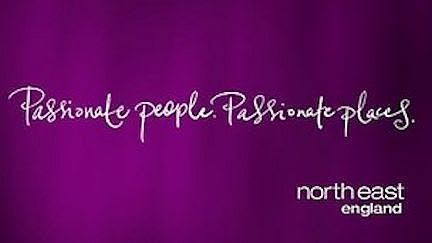A wider range of theatre
The region’s commercial houses—Darlington Hippodrome, Newcastle Theatre Royal and Sunderland Empire—continued as they have done for many years with a mixture of drama, musicals, opera, ballet and one-night stands of various kinds, with the balance between the art forms varying. The managements know their audiences and what will—or won’t!—work.
The Tyne Theatre and Opera House (larger than the Hippodrome, smaller than the Empire but similar in size to the Theatre Royal) is also primarily a receiving house but with not quite so full a programme as the other four and features mainly but not exclusively one-night stands with a number of amateur shows.
The funded producing theatres (Northern Stage, Live) also act as receiving houses part of the time so that, in addition to the commercial product of the first mentioned (such as Calendar Girls the Musical or The King and I), we also had the National Theatre of Scotland’s The Cheviot, the Stag and the Black, Black Oil (at Live), The Watermill’s A Midsummer Night’s Dream and ETT’s Reasons to Stay Alive (both at Northern Stage), none of which would ever have been given space in the commercial houses.
There are at least twelve smaller theatres throughout the region, ranging in size from the smallest (200 capacity: the Georgian Theatre Royal in Richmond) to the largest (Billingham Forum, with a capacity of 631, leading Playhouse Whitley Bay by one seat!). Many would more accurately be called arts centres, for their programmes feature courses, workshops and exhibitions as well as performances.
Some are also producing houses. ARC Stockton, Queen’s Hall (Hexham) and South Shields’ Customs House produced the most shows during the year.
Durham’s Gala Theatre normally produces two shows a year. This year they were John Godber’s Teechers and a co-production of Lord of the Flies with Durham Student Theatre and Unfolding Theatre of Newcastle.
Co-productions between major regional theatres such as Northern Stage or Live Theatre and others of a similar nature elsewhere in the country have been common for a number of years now—for obvious financial reasons—but now links between theatres and non-building-based companies are becoming more common in the NE. Apart from the Gala / Unfolding Theatre co-pro, Elysium Theatre Company has linked up three times with the Queen’s Hall, including this year’s Christmas show at Hexham, A Viking Christmas.
Elysium, in fact, has filled a gap in the theatrical taxonomy of the region, producing the kind of plays which rarely, if ever, see the light of day in the region. This year, they presented Michael Meyer’s translation of Strindberg’s Miss Julie, which toured to venues as varied as the Gala in Durham and the Majestic in Darlington, and Athol Fugard’s Playland which transferred to Salford’s The Empty Space.
Opera continues to be catered for by Newcastle Theatre Royal (Opera North, which also performs at The Sage Gateshead), Sunderland Empire (Ellen Kent) and the Gala, Durham (English Touring Opera).
Inevitably, Dance City leads the region in terms of dance provision (and not just performance: it offers courses for professionals and non-professionals in Newcastle and at The Fire Station in Sunderland), and in 2019 it presented shows by, among others, Ballet Wales, contemporary dance superstar Russell Maliphant, Scottish Dance Theatre, Ockham’s Razor and the National Youth Dance Company, alongside local companies such as Fertile Ground, State of Grace and Company of Others.
Northern Stage continues to include contemporary dance in its programming, this year featuring Associate Artist balletLORENT, Northern Ballet, the Gary Clarke Company and dance / physical theatre / comedy specialists Gracefool Collective.
